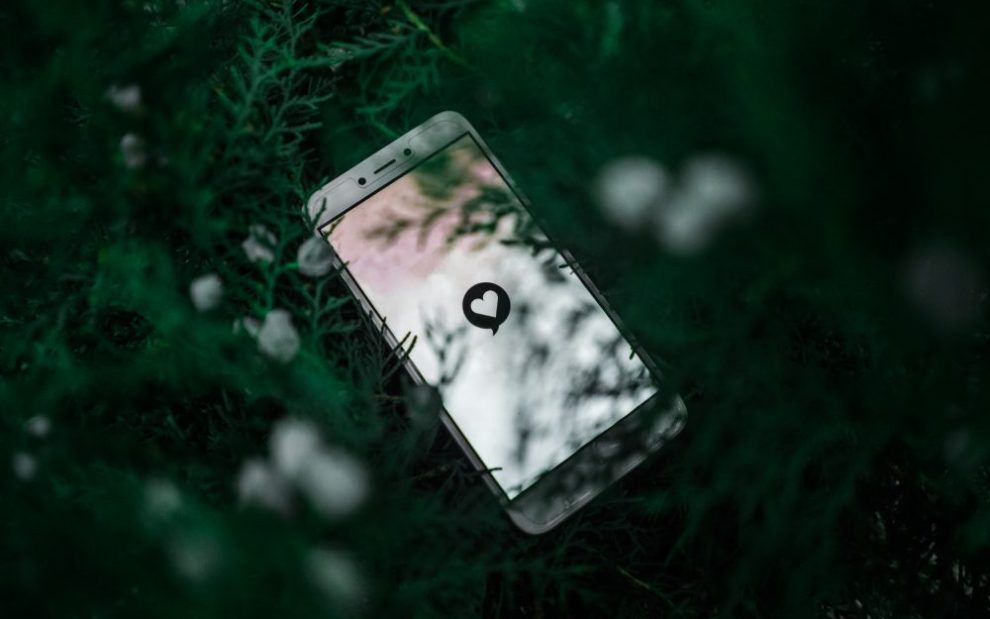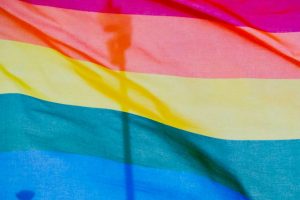Robert Harris is a 33-year-old Black, queer Catholic in Ann Arbor, Michigan. He came to Catholicism at 14, around the time he began developing an awareness of his own sexuality. In the decade that followed, Harris was involved in three relationships, none of which incorporated an understanding of his religious identity. While the predominantly white Diocese of Lansing in which Harris lives offers events for Catholic singles, they were aimed toward a particular audience: straight, marriage-minded young Catholics. In the 10 years since his last relationship ended, Harris has not been seriously involved with anyone and has, in his own words, given up on finding a like-minded partner.
At World Youth Day in 2013, Pope Francis said, “We need a church capable of walking at people’s side, of doing more than simply listening to them; a church that accompanies them on their journey.” But pastoral accompaniment for Catholics navigating dating is lacking, particularly for those on the margins. The stories of LGBTQ, divorced, and disabled Catholics looking for loving relationships are drowned out by those that are simpler: young, heterosexual couples who marry and raise children.
Harris’ struggle is not unique. Although many dioceses host events that encourage singles to mingle, they are often intended for young, able-bodied, straight, white Catholics seeking spouses. These efforts can include speed-dating events, social groups for singles, dating retreats, and the National Catholic Singles Conference. Dating websites such as Catholic Match boast an alternative to competitors such as Tinder, claiming that the service will help Catholics find future spouses. However, some Catholics find these online spaces lacking in diversity.
Not the best match
Patty Breen, a 37-year-old divorced Catholic writer in Farmington Hills, Michigan has used Catholic Match intermittently and found the service somewhat exclusionary.
“I still use Catholic Match,” Breen says. “But I don’t feel like it’s a good representation of the vast Catholic population who are dating. I feel like they cater to a very specific demographic: people who are white and in their 20s and 30s.”
She says some of the men she’s connected with have made her uncomfortable. “I get matched with these weirdos who, in the second email, are asking me, ‘How many babies do you want to have?’ ” Catholic Match declined requests to comment for this article.
Although Catholic Match has been hit-or-miss for Breen, it isn’t even an option for Harris, who has only dated men or masculine-presenting individuals.
Harris chose Catholicism at 14, a year after a substitute teacher showed his class a made-for-TV movie from the 1990s about Joan of Arc. Harris, who was raised Pentecostal, was drawn to Catholic mysticism. Soon he discovered EWTN and Catholic radio stations.
Between religious revelations, Harris experienced a more common coming-of-age milestone. He became aware of his sexuality. “When I finished RCIA,” he says, “that was when I sort of came to terms with the fact that I didn’t fit into what everybody else was going through.”
Kenn Dowling, also 33 years old, identifies as gay. He was born in San Francisco but lives in Chicago while finishing postdoctoral research in clinical psychology. He is active in DignityUSA, a Catholic LGBTQ advocacy organization. Although Dowling’s family didn’t talk much about religion, he was hungry for spiritual growth growing up. He turned to EWTN and “fundamentalist” Catholic websites. “All those things kind of radicalized me and made me a really homophobic Catholic,” he says. “A lot of my faith was very fear based at that time. I was trying to repress my sexuality.”
Ableism in the Catholic dating scene
LGBTQ people are not the only marginalized Catholics trying to navigate dating in a framework designed for young, straight, non-disabled men and women. Chris C., who asked to maintain a degree of anonymity due to fear of discrimination at his parish, is a 27-year-old disabled Catholic convert in Ontario, Canada living with autism, ADHD, and generalized anxiety disorder. When Chris converted to Catholicism, he too found fringe Catholic outlets such as Church Militant. He says he spent years unlearning the bad theology he absorbed there. Still, many of the women he’s found online subscribe to this type of Catholicism.
Before his conversion, Chris used dating sites such as OKCupid and Plenty of Fish to meet women. He says that using these secular sites became more complicated after he became Catholic. Lacking a sense of belonging in his parish due to his disabilities, he switched to various Facebook groups for Catholic singles. He says many of the women in these groups are influenced by Facebook pages such as “Traditional Catholic Femininity” and “The Transformed Wife.” These pages promote relationships where men work and are revered as heads of households and women keep house and practice subservience to their husbands. “I felt [posts from these pages] were quite triggering, because they would mention that the man must be gainfully employed,” Chris says.
“A lot of the people I’ve encountered make me feel insufficient because of my disabilities.” Chris C.
Chris is unable to work due to his medical conditions. Because of this, he has experienced isolation, even in past relationships. “I was in an on-off relationship with a Catholic woman out in California, and she was quite traditional. I met her in a Facebook group,” he says. “During that relationship, I never really felt like I could be open with her about my struggles with disabilities.”
These groups are another reason Chris asked to withhold his surname from this article. Both men and women have cyberbullied Chris about his disabilities when he’s discussed them online. “When I post about my struggles,” he says, “a lot of the people I’ve encountered make me feel insufficient because of my disabilities. They make me feel like I’m not a man.”
Although Chris’ relationships have all been long distance, he has tried to date closer to home. Chris says his fellow parishioners don’t understand autism, and he has faced social consequences because of this. “I did try dating women within the parish,” he says, “and they unfortunately thought my mannerisms were so odd. They kept me at an arm’s length. It’s tough.”
Wrestling with church teaching
Harris says he accepts the church’s teaching on homosexuality but struggles with how to apply it to his life. He says that while he is not opposed to dating a woman, he has not met any women who are interested in pursuing a relationship with him. It took him years to understand what church teaching meant to him, particularly the oft-quoted passage of the Catechism of the Catholic Church that states that “homosexual acts are intrinsically disordered.”
Harris interprets this passage as meaning that any same-sex relationship must be celibate and cites this as the reason why he has only dated three different people in his life. “When it comes to romantic relationships, I didn’t have one of those until I was 21 years old,” he says. “I did not meet them in any sort of faith-based environment. That first person wanted something that I—even when I was actively giving it to them—didn’t feel as though I could give them as much as they wanted.”
Harris says he doesn’t know what he wants in a relationship yet. “I’m not sure if I want to find a woman and get married,” he says. “I’m not sure if I want children, but I’m not against it. It’s just if I do have something with someone, I want it to be something that’s in line with my values.”
“If I do have something with someone, I want it to be something that’s in line with my values.”
Robert HarrisAdvertisement
He also says he would not feel comfortable bringing a same-sex partner to church with him. He does not feel like he can express his sexual orientation, or acknowledge it at all, at his current parish. “There are those who are stuck in this mindset that anything queer-related is bad. If I were with someone, I probably wouldn’t show any sort of affection toward them in that space,” Harris says. While civil marriage to another man isn’t an option Harris would consider, he doesn’t oppose others’ desire to marry.
Although the two men share much in common, Dowling came to a different conclusion than Harris regarding dating and celibacy. “I couldn’t believe in a God that would ask me to be celibate my whole life,” he says. “So, I finally admitted that the church was wrong when I was around 20 years old.”
This realization, rather than providing comfort, sent Dowling down a path of tumult and discernment. “It was chaotic for me,” he says. “I had to rebuild everything from the ground up. I did a lot of research, a lot of reading, a lot of prayer, a lot of networking, and really worked to reestablish my faith to be a queer-affirming one. It took a long, long time.”
Dowling was in his late teens when he started dating, though he felt conflicted about doing so. Dowling didn’t have fellow Catholics to talk to about his experience, so he tried to make sense of his situation on his own. He considered the priesthood, celibacy, sexual activity, and whether he wanted to continue pursuing relationships with men. Without anyone to discuss this with, he felt confused and ashamed. “I wasn’t sure whether I would find a boyfriend who could understand all that,” he says.
Dowling has struggled to find a man who understands his connection to his faith and says some men he’s dated have considered his Catholicism a red flag. Especially early on, Dowling didn’t know how to broach the topic of spirituality in relationships. “I think I didn’t quite know how to code switch, in terms of talking about religion and spirituality with people who are friendly to it versus hiding it when I’m around people who aren’t,” Dowling says. “That’s something I learned to do over time.”
But this isn’t something Dowling enjoys. Instead, it feels like a necessity. In a perfect world, he says he would find another progressive Catholic man to be with, but over the years he’s come to terms with the unlikeliness of this scenario. In general, Dowling feels rewarded socially and spiritually when he is active in LGBTQ Catholic spaces but feels isolated from romantic relationships when he is open about his involvement with the Catholic Church. He described it as a type of trade-off: “In Washington, D.C. and San Francisco, I was active in queer Christian spaces, and I was isolated by secular gay men,” he says. “Then I moved to Chicago, and I’ve just completely not interacted in queer Catholic spaces. I feel like I’ve been more accepted by other gay men because I’ve been less openly religious.”
“I wonder if one day I’ll be old and single, and I’ll become a priest.” Kenn Dowling
Although he has felt discriminated against by gay men due to his faith, he understands why it makes some uninterested in pursuing relationships with him. The loneliness that results from making himself vulnerable to potential partners only to be rejected due to his faith has taken a toll on Dowling. “Queer people have a lot of religious trauma, and I don’t want to trigger them,” he says. “I wonder if one day I’ll be old and single, and I’ll become a priest.”
Stigmas about divorce
The impetus of educating fellow Catholics on the lived experiences of those on the margins is often left to the marginalized. Lisa Duffy, a Catholic writer, speaker, and divorce recovery expert living in South Carolina, created the “Journey of Hope” program after going through a divorce in the early 1990s. The program has been adopted by parishes across the country.
Duffy, who has been married for 22 years and has three children, reflects on her experience with divorce and dating. “I really didn’t understand where I stood in the church,” she says. “Some parishes had the idea that if you were divorced, you weren’t really allowed to participate as a leader in any way, and that was very difficult because I was a traditional, practicing Catholic.”
In addition, priests advised Duffy that it was fine to begin dating as soon as her divorce was finalized. She later found out that was wrong, and not just because she didn’t have an annulment. “That technicality aside, I was not ready for dating,” she says. “It was very different from dating before you’re married.”
Breen describes the same feeling after going through a divorce and annulment at age 30. “I was nervous,” Breen says. “I got on apps and begrudgingly went on Catholic Match. You learn. You make mistakes. I just kind of jumped into it.”
Breen and Duffy both agree that their dates’ expectations were somewhat shocking. “The pressure to have sex and be intimate, even when I was getting back into the dating scene, was so intense,” Duffy says. “I can’t even imagine what it’s like now. You really have to fight your battles and stick to what you know is right.”
“Some parishes had the idea that if you were divorced, you weren’t really allowed to participate as a leader in any way.” Lisa Duffy
Breen says sex is often an expectation before a meeting even occurs. “I’ve had men cancel dates when they just directly asked me [about sex],” Breen says. “That doesn’t mean I’m perfect and that I’ve always lived up to that ideal, but I’m not going to lie if you ask me.”
In addition, Breen describes situations where Catholic men were uncomfortable with the fact that she’d been married, despite her annulment. They were not willing to unsubscribe from the traditional narratives surrounding ideal Catholic relationships. “I had one man on a dating app, maybe two years ago,” she says. “Somehow he found my last name and read what I had written [about my divorce]. He then messaged me to say, ‘I can’t be with someone who’s been married, and that’s a lot that you went through.’ That felt weird.”
Finding community
Breen and Duffy also both agree that the most important thing parishes can do to help divorced Catholics move forward with their lives is to shed light on their experiences. “We all recognize the sin in the scenario,” Duffy says. “So, now that that’s out of the way, let’s talk about helping this person heal through their faith.”
When asked how the church can better support LGBTQ Catholics as they seek affirming, loving relationships, Harris expressed frustration with the lack of empowerment of LGBTQ Catholics within the church. Instead of being accompanied, Harris keeps his experiences to himself among his church community. He, like other marginalized Catholics, does not have a platform in his parish to express himself without judgment. No one is accompanying him in his journey.
“It’s as though our opinions don’t matter as much,” Harris says. “If we can somehow find a way to speak to cisgender, heterosexual laypeople to help them understand our experiences, then maybe there could be a catalyst for real change.”
Dating as a marginalized Catholic is difficult, and marginalized status often causes people to leave the church. After exploring the Episcopal Church, Dowling realized he couldn’t convert. He had to remain Catholic and find joy in both his religious identity and his sexual orientation. His faith has been a source of solace and strength, and most of his Catholic friends are fellow LGBTQ Catholics who can understand his experiences and have an active interest in doing so.
“Catholicism is my mother tongue or my homeland in terms of religion,” Dowling says. “It’s like stepping into this enchanted world in which there’s always God present in all things. God is very comforting to me as a kind of column—my boyfriend in the sky.”
This article also appears in the July 2023 issue of U.S. Catholic (Vol. 88, No. 7, pages 26-30). Click here to subscribe to the magazine.
Image: Unsplash/Pratik Gupta













Add comment